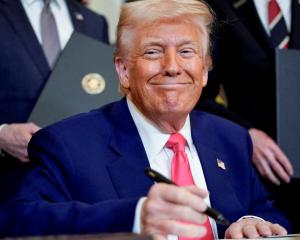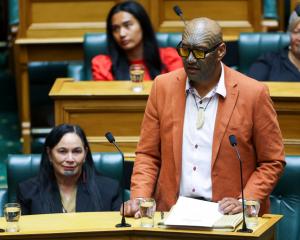The Government's commitment to a higher but unambitious emissions reduction target will surprise few.
Similarly, the reactions of Labour and the Greens are expected. What is being witnessed are the policies of a pragmatic Government and standard opposition positioning.
Climate Change Issues Minister Tim Groser says the target was debated vigorously in Cabinet. Although that might well be so, the outcome would never have been in doubt.
Prime Minister John Key, in particular, is a master at steering a moderate course.
Nations are submitting new targets to reduce greenhouse gas emissions ahead of the crucial Paris summit on climate change later this year.
Mr Groser this week announced New Zealand's new target would be to cut emissions by 30% from 2005 levels by 2030.
He called this a significant increase on the 2020 target, a 5% reduction below 1990 levels. If that 1990 baseline is used, the target is the equivalent of an 11% drop.
Mr Groser says this is ''respectable'' and in line with what the United States, Canada and Japan are promising. Australia is yet come out with its figure.
New Zealand has in the past said its contribution to global emissions is minuscule and it should be a ''fast follower'' rather than leading the way.
Much power production is already renewable (hydro), and farming and transport are responsible for 70% of emissions.
It can easily be argued New Zealand is doing the minimum possible - Government supporters would argue being pragmatic again - and it has checked which way the international winds are blowing before committing.
Internationally, though, attitudes have shifted. The United States, at least officially, appears to be taking climate change more seriously, and China has announced it plans for emissions to peak in 2030.
It appears to recognise, even if it is not responsible for most gas emissions in the past, that it will grievously suffer the effects of climate change.
The United States and China between them are now responsible for 40% of emissions, so their role in climate change and the future of a planet fit for human habitation are vital.
The obvious questions on New Zealand's target concern specific actions being taken. After all, the 1990 target was swamped as dairy emissions soared and many more trees were cut down than planted.
It would appear Mr Groser is relying on hope more than policies. He says agricultural research is beginning to bear fruit'' and the cost of electric car and hybrids is starting to fall. Let's hope he is correct.
Even the 30% reduction will take a lot to achieve.
Mr Groser does say the Government will adopt an appropriate mix of policies to ensure the target is met, but at this stage that seems to involve primarily a review of the emissions trading scheme. This was weakened by National and, as acknowledged, needs toughening.
Unexpectedly, the price of carbon collapsed and the scheme failed.
National is sceptical about ''green growth''.
It argues the best advice it has received is that lowering emissions will cost the economy, at least in the short and medium term.
The cost of even its limited commitment is put at $1270 a family a year, not a massive amount for some but significant nonetheless.
In its pragmatism, National knows it will not appeal to the green vote whatever it does, so there is little to gain electorally from doing much more than the minimum.
It knows, too, despite the relatively high level of climate change scepticism in this country, the majority of voters have some concerns and it must be seen to be doing something.
Most voters, however, will reject being hit significantly in the pocket.
From that point of view, National has its policy about right. Legitimate fears, however, must arise because the climate does not play politics.
The efforts of New Zealand and the rest of the world could well be too little too late.













